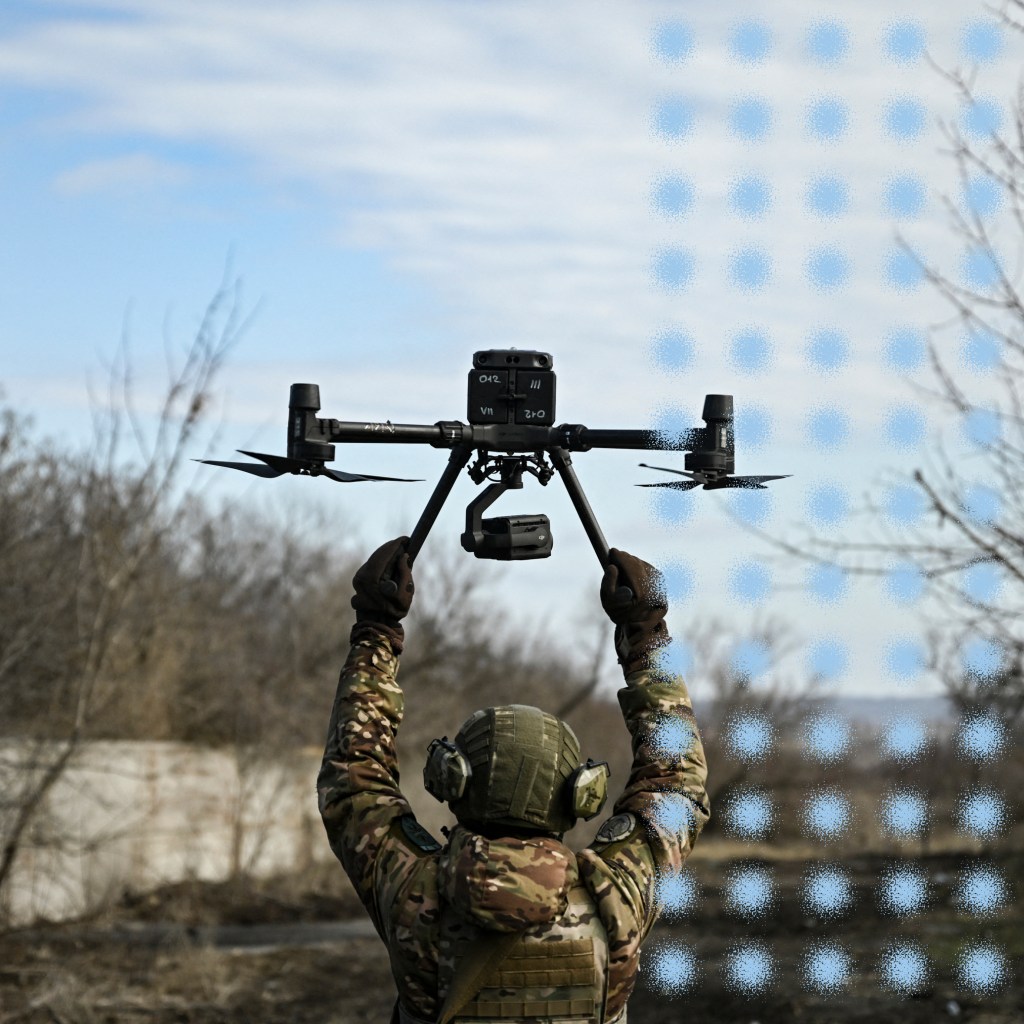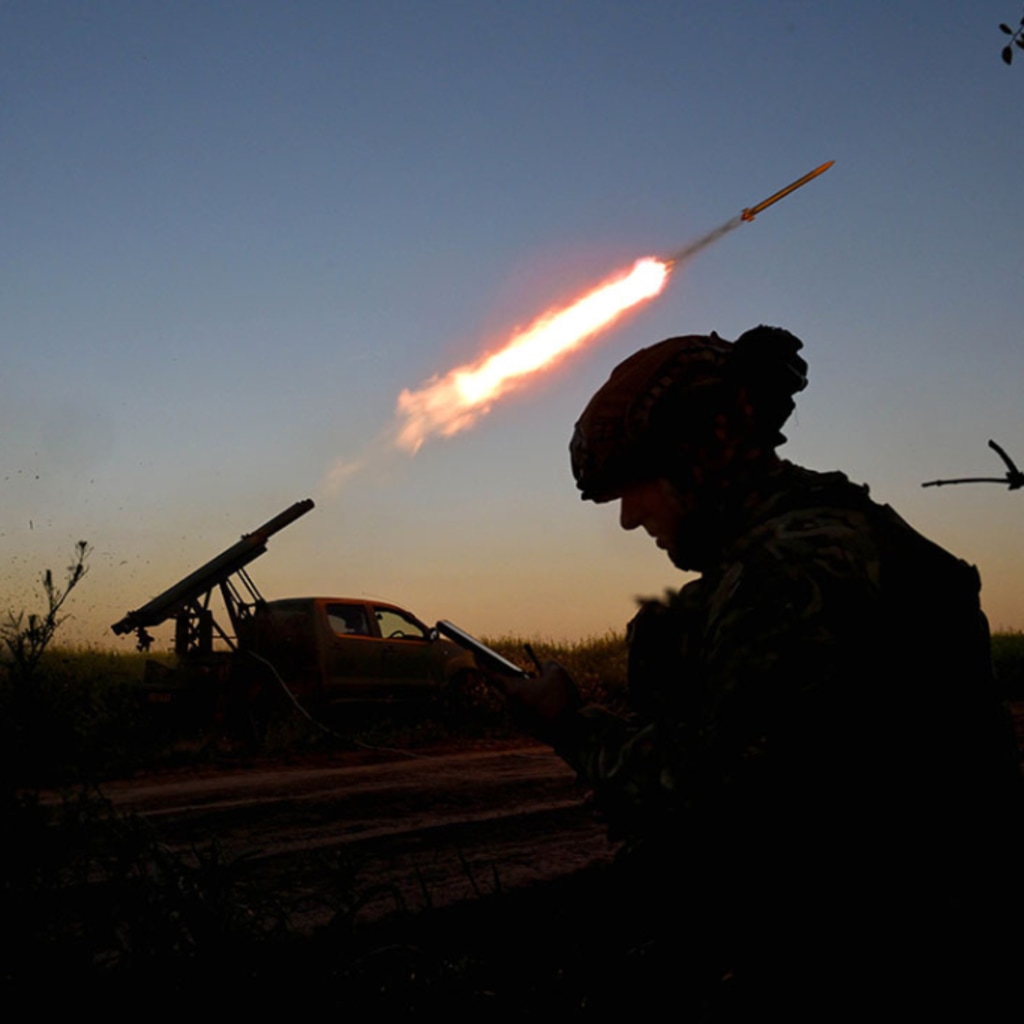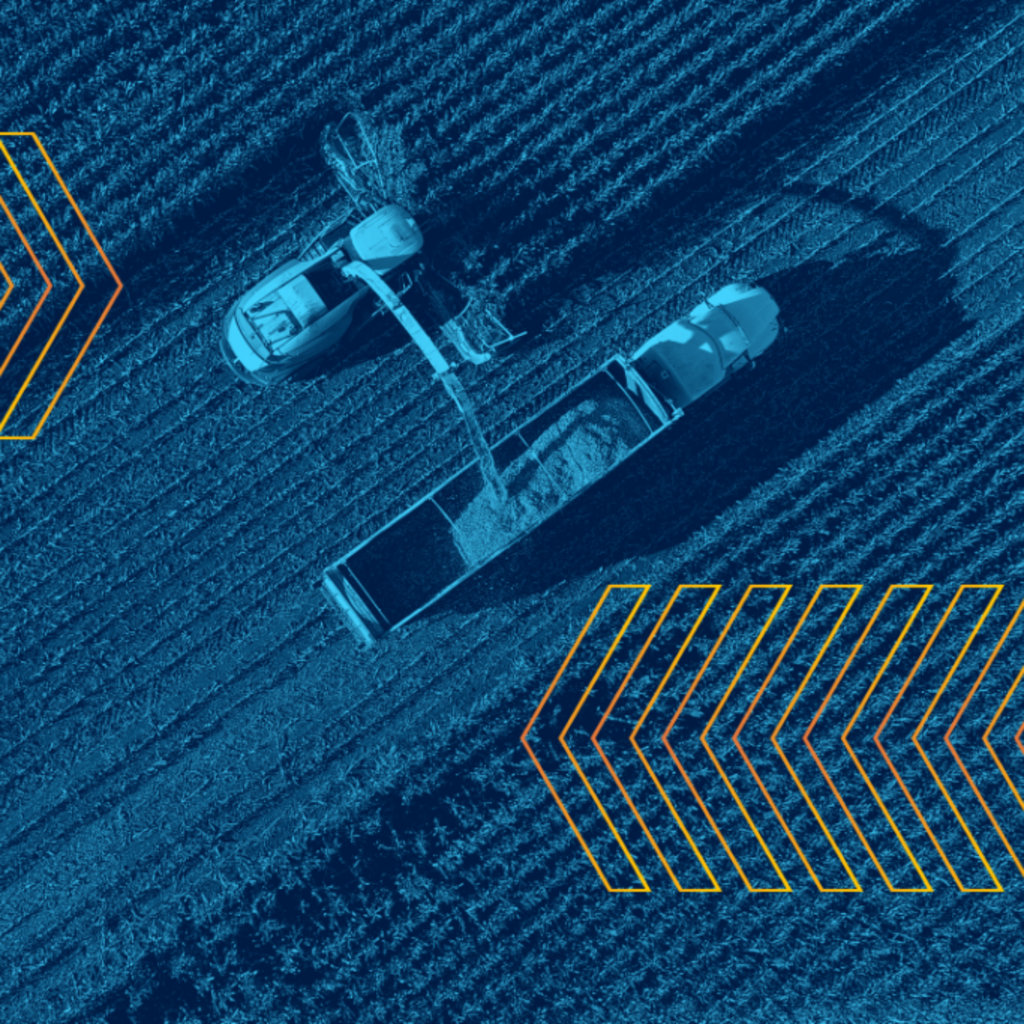Space Jam
Space is getting crowded. The biggest challenge is space junk—the debris that results when satellites break up or get shot down. If we aren’t careful, space junk, and space conflict, could cause a lot of problems down here on Earth.
Published
Host
- Gabrielle SierraDirector, Podcasting
Supervising Producer
- Asher RossLead Content Strategist
- Jeremy SherlickDirector of Video
Audio Producer and Sound Designer
- Markus ZakariaAudio Producer & Sound Designer
Associate Podcast Producer
- Rafaela Siewert
Show Notes
We often envision space as a dark, empty void. But in recent decades, Earth’s orbital zone has become crowded and dangerous. One factor is the proliferation of satellites, many of them privately owned. Another is space junk, or the growing mass of debris left behind when satellites break up or are shot down. Some experts say that, without new rules of the road, space junk—and the militarization of space—could lead to catastrophe.
From CFR
“The Danger of Space Debris,” Micah Zenko
“Space Exploration and U.S. Competitiveness,” Steven J. Markovich and Andrew Chatzky
Read More
“The Right Way to Achieve Security in Space,” Foreign Affairs
Space Threat Assessment 2019, Center for Strategic and International Studies
“Space war is coming—and the U.S. is not ready,” Politico
“Is there anything we can do to tackle space debris?,” MIT Technology Review
“The Danger of Space Junk,” Atlantic
Watch and Listen
“Space Junk Around Earth,” DCODE by Discovery
“End of Space–Creating a Prison for Humanity,” Kurzgesagt
Transcript
Stewart PATRICK: Outer space is a great realm of possibility and the question is whether or not that realm of possibility will be closed off.
LTG David THOMPSON: We track twenty-five thousand plus objects continuously to understand where they are and if they pose a hazard to each other.
PATRICK: There’s a real danger that there’s going to be militarization of outer space.
MG Charles BOLDEN: They’ve got to be able to go in and say, look, I’ve got everything in my arsenal to just wipe you out. But I don’t want to do that. I don’t want to make this domain unusable for everybody.
Space is an infinite horizon - an endless void full of possibility.
But the part of space near Earth is getting really crowded. And it’s getting really dangerous.
It used to be just Russia and the United States, but now nine countries, and dozens of private entities, are regularly launching objects into space.
All of these players are competing for limited real estate. Crowding leads to conflict. And so far the world hasn’t developed rules to solve space disputes, or to prevent war from spilling over into the night sky.
As things heat up, some countries are pouring billions of dollars into space defense. The technologies are futuristic-sounding, anti-satellite lasers high-altitude EMP weapons. But the biggest danger is something slightly less glamorous ... space junk.
I’m Gabrielle Sierra, and this is Why It Matters. Today, will the world ruin space?
PATRICK: Space junk, some of it’s like the pieces of defunct satellites, including those that have been destroyed by anti-satellite weapons tests.
This is Stewart Patrick. He’s a senior fellow for Global Governance here at the Council. That means he spends most of his time trying to figure out how to get the world to work together.
PATRICK: But basically, there are these pieces of space junk and they’re hurtling around at almost twenty thousand miles an hour in low-Earth orbit. And I don’t know if you saw the movie Gravity, but what happens is that if those things collide with a functioning satellite or, say, a space station, the results could be absolutely catastrophic.
Gabrielle SIERRA: Just rocket Sandra Bullock out into space.
PATRICK: Exactly. Totally. Yes. And there are also seven hundred and fifty thousand pieces that are being tracked that are larger than a pea but smaller than a softball. So any one of those could cause catastrophic damage. And so the question is, how do we deal with all this space junk? Because if there’s if there’s too much of an accumulation of space junk, it could render this outer space domain almost unusable.
Time for a quick zero gravity simulation. So imagine that every time you threw away an apple core, or tossed your bag on the couch, it didn’t land. Instead it just stayed in motion alongside you. Eventually you’d be surrounded by stuff. And that would make getting around pretty hard. That’s basically what happens in space. Everything stays at the orbit it’s in, moving at the same speed, until something else touches it. And there’s so much of it out there that getting into and around space is dangerous.
SIERRA: So I’ve heard that Space Command provides a type of space junk air traffic control.
THOMPSON: That’s correct.
This is Lt General David Thompson. He’s the Vice Commander of Air Force Space Command. He helps oversee the use of space by the U.S. military.
THOMPSON: We operate a global set of sensors. We track twenty-five thousand plus objects continuously to understand where they are and if they pose a hazard to each other. And if they pose a hazard, we specifically provide warning to anybody. It might be NASA, it might be a commercial operator, it might be the Russians or the Chinese. We provide warning if that’s a hazard. We do it because today we’re really the only folks in the world that can do it.
SIERRA: I mean, because an object the size of your fist moving that quickly could be incredibly destructive to anything, including a satellite.
THOMPSON: Correct. Absolutely. In fact, objects a whole lot smaller than that at that speed create incredible danger. There’s a story—actually a true story of the space shuttle back when it was flying in its early days in the 1990s. It had multi-paned windows, a fleck of paint traveling at seventeen thousand miles an hour went through all but the last pane of that window.
SIERRA: A fleck of paint?
THOMPSON: A fleck of paint.
SIERRA: Wow.
THOMPSON: Had it penetrated that last window pane, then the atmosphere, right—the air inside the shuttle would have been evacuated and they would have had a huge problem.
So, where does space junk come from? Some of it is created when satellites go dead, or malfunction, or break up. This is sort of inevitable and out of our control. But the other way space junk is created is more intentional. Since the 1960s,the US and Russia have been testing their ability to destroy satellites in orbit. And recently, other countries have been doing the same. In 2007, for example, China shocked the world by destroying one of their own weather satellites with a missile.
Dutch RUPPERSBERGER: 00:15 I’m very concerned that China has conducted a destructive anti satellite test against its own satellite, that the redfield as a result of this was troubling to our satellites and our space missions.
Patrick MURPHY: 0:04 India held an anti-satellite test, now this test created a cloud of orbital debris, thats flying in low earth orbit
Jim BRIDENSTINE: 1:18 That is a terrible terrible thing to create an event that sends debris in an apogee that goes above the intl space station that kind of activity is not compatible with the future of human space flight that we need to see have happen.
SIERRA: Why would it matter if someone shot down their own satellite?
THOMPSON: The problem is debris. That 2007 test that the Chinese executed created more than 3,500 pieces of debris. Ninety percent of that debris is still in orbit today and poses a threat to all other satellites operating in that regime.
SIERRA: So if people keep doing these sorts of tests, that number will just keep going up and up?
THOMPSON: Correct. Correct. That number will grow. Those satellites in lower orbits—eventually that debris will reenter the atmosphere, but most of the operating location of the satellites that would be under threat—you know, we are talking about decades and perhaps centuries that the debris would remain in orbit.
When you look up at the night sky and see a satellite blinking by, it’s probably in something called low earth orbit. This refers to the first 1,200 miles of space above the earth’s surface. Some specialized satellites orbit higher than that, but the majority stay pretty close to Earth.
Theorists worry that conflict in space, or a cascade of satellite collisions, could turn low earth orbit into a deadly traffic jam of debris. If that happened there’d be no way to get through the junk and into outer space. That means no new satellites, no trips to the moon, no Mars missions. And the problem could last for hundreds of years.
SIERRA: Is the idea to just sort of flex a muscle and show that you can shoot down a satellite if you want to?
THOMPSON: They used it as a target just to demonstrate the capability. Because space is such an important part of military operations, it provides tremendous advantages to the armed forces of the United States and would to anybody.
And so naturally, someone who anticipates they may end up in a conflict with the United States, they may think the first thing they need to do in a war is remove those space capabilities so that it impacts the U.S.’ ability to operate. So there is military advantage to denying use of space to an adversary in conflict.
SIERRA: So what would the U.S. military look like without satellites.
THOMPSON: The U.S. military would look like the military we had in the twentieth century, industrial age warfare. As a couple of examples, at the end of World War II we had a tremendous strategic Air Force. That Air Force put a thousand airplanes in the air over Europe, over Germany every single day at the end of the war, dropped anywhere from six (thousand) to twelve thousand bombs, all aimed at one point. But at the end of the—at the end of the war the U.S. Strategic Bombing Survey said, of those nine (thousand) to twelve thousand bombs, only one hundred fell within a half mile of the target. That’s industrial age warfare.
In Vietnam, there was a strategic railroad crossing of a river in North Vietnam, took thirty airplanes and 176 bombs to destroy one railroad bridge.
SIERRA: And Now?
THOMPSON: Now we’re talking about two bombers, 108 bombs, 108 different targets.
Without satellites, U.S. military operations might look like something you’d see on the History Channel. And that’s because satellites are part of nearly everything the modern military does. It’s not hard to see why an ambitious enemy would want to gain the ability to shoot them down, despite the risk that space junk poses to everyone on the planet.
THOMPSON: Satellite communications allow us to communicate anywhere on the globe at any time. Whether you are in the middle of an ocean, in the middle of a desert, in air space anywhere in the world.
We certainly use satellites to collect intelligence information from space, and do that all over the world all the time. And then, also, things like missile warning. It’s also a matter of not creating undue damage on civilian populations, not striking targets you are not aiming at which would have undue effect on civilian populations, civilian infrastructure, and things like that.
This all may seem pretty removed from our daily lives. But a lot of what satellites do for the military, they do for the rest of us too. And our world has become deeply dependent on them.
BOLDEN: One of the things we love to do, and we’ve never been able to do it worldwide, is get people to join us in a day without space.
This is Charles Bolden. He ran NASA under the Obama administration. Before that he was a marine, a navy test pilot, and an astronaut.
BOLDEN: So shut down your cell phone, turn off your television, turn off the radio in the car, don’t look at your clock, don’t go to the ATM machine, don’t do anything that requires precise timing, because it’s gone. That’s a day without space.
THOMPSON: Most citizens don’t realize just how important satellites are to them every day. Let me give you an example, and we’ll talk about GPS.
First of all, the clear and easy answer for why GPS is so important is the blue dot on your smartphone, right? You know, navigating around wherever you are going, following the blue dot, that’s powered by GPS. It tells you not only where you are but where you are going.
The second piece of that, though, is GPS just doesn’t provide positions and navigation, it also provides timing.
Besides guiding you to the closest Starbucks or Dunkin Donuts, GPS is the basis for all kinds of technologies. It powers financial transactions, cell phone calls, and emergency medical services. Amazon uses it to track deliveries. The list goes on and on. Not many people realize it, but GPS is provided as a free service to the world by the United States government.
SIERRA: So satellites go down, and we lose our GPS.
THOMPSON: Correct.
SIERRA: We lose our weather prediction, and we lose our streaming Netflix.
THOMPSON: Right.
SIERRA: Not good stuff.
THOMPSON: What is there left to do? That’s right.
Netflix aside, let’s be clear. A widespread satellite failure could be catastrophic. So many different systems depend on satellites that nobody has a full picture of what the fallout might look like. Planes could be grounded. You could have a hard time taking out money. The power grid could fail, and the stock market might be shut down. Sure, space junk is circling a thousand miles above our heads, but the problems it might cause are very much down here on Earth.
Patrick: I think that outer space is a great realm of possibility. And the question is whether or not that realm of possibility will be closed off the route to it will be closed off by the fact that we can’t overcome our disagreements on Earth.
PATRICK: What we’re seeing in space is a real democratization, which used to only be limited to a few big countries that had space programs. But now you’re seeing the rise of all sorts of what they call spacefaring nations, like India, for instance, has emerged as a pretty big player. But at the same time you’ve got all these private actors, too. So you’ve got SpaceX by Elon Musk, and then you’ve got Amazon also has a space program, and some Chinese equivalents as well. And these private-sector actors are putting up huge numbers of satellites, entire constellations that could have more than a thousand satellites in each of them.
SIERRA: So it’s just literally getting crowded.
PATRICK: It’s getting really crowded. So part of that issue is that there’s just no space, there’s no room to necessarily manage all of this congestion up there. So the question is, how do you actually accommodate all these actors in this new space rush that’s going on?
SIERRA: So is the idea that we need some sort of traffic cop to lead us around?
PATRICK: Well, one of the big problems is that there is no real modern set of rules for a lot of things in outer space. The granddaddy of all the treaties when it comes to how to regulate outer space is the Outer Space Treaty, which is getting pretty long in the tooth. It’s fifty-two years old now. In 1967 it came into play. The problem with the Outer Space Treaty is it doesn’t deal with a number of things that have come to the forefront.
The Outer Space Treaty was built to deal with cold war concerns. It prevents countries from claiming Mars as their own, or placing nuclear launch sites on the moon. But the people who made it were not thinking about space junk, or the possibility that Jeff Bezos would one day be launching thousands of private satellites. Space has changed since 1967. And this has left experts thinking about new rules.
PATRICK: I think one of the answers is that you need to have as much transparency as possible and you need to have as much ability to monitor whether or not people are living up to their commitments. And I think that that’s been one of the most difficult things in outer space generally because, obviously, it’s a domain that’s far away and it’s not easily observable as to how countries are behaving. There probably is going to need to be some sort of intergovernmental organization that actually would be able to go in and verify whether or not commitments are actually being made. And that that will require a level of intrusiveness that is not only going to bother potential adversaries of ours, because we get to look at their stuff and they get to look at our stuff, but a lot of sovereignty-minded leaders and politicians and officials in the United States will resist that because they may not be willing to trade off that level of transparency, which they think might give up, you know, some of the state secrets, in the interest of creating a stable outer-space realm.
But it’s only going to get more and more competitive and contested if we don’t have some rules of the road for outer space. It will become the Wild West, in effect, in outer space.
And the benefits are no joke, serious science gets done in space. For example, most of our understanding of climate change comes from satellites. At any given time, researchers are conducting scientific and medical experiments in space that couldn’t be done anywhere else.
Plus, cooperation in space has helped the U.S. form important ties. Even with countries that have a tense relationship with the U.S. down on Earth.
SIERRA: How closely do NASA scientists work with scientists from other countries?
BOLDEN: NASA scientists and scientists from other countries try to the greatest extent to work incredibly closely. When I was the NASA administrator under President Obama, he literally charged NASA to, the way he phrased it, expand the number of nontraditional partners that you have across the NASA portfolio.
And so, you picked a great example when you mentioned the U.S. and China. In my role as the NASA administrator, my job was to do everything in my power to find a way to enable our countries to work collaboratively on peaceful things, hoping that if we could do that then it would delay if not prevent conflict. I tell people all the time, I think next to the Department of State and the Department of Defense NASA is the greatest provider of soft power for the U.S., you know, in our arsenal. So we really work as hard as we can to try to facilitate peaceful collaboration among nations. If you look at the relationship between NASA and Roscosmos, the Russian space agency, it is a perfect example of the way that NASA uses its soft power to try to eliminate the tensions or ease the tension that comes about almost daily with Russia in terms of diplomatic relationship. China, same thing, we work with China in lunar science, study of the moon. And we work with them in geodetics, which is the study of earthquakes. They’re really, really good at it. And so we try to learn from them, and we try to use their data and they use our data.
But as things heat up in space, it’s feeling less and less like a place for peaceful cooperation. And if things worsen, these scientific bonds could break.
Patrick: One of the big trends, and a worrisome trend, is the fact that other countries are following the U.S. lead in terms of creating space forces as part of their military establishment. Recently the French government has announced that it is also going to create a space force. There are similar military doctrines and military instruments being developed in China, in Russia. I would not be too surprised to see the Indians follow suit. It sort of reminds me of the early nuclear age, where there’s a pell-mell desire to sort of create one’s own capabilities. How can we take advantage of this to make sure that we are not threatened by others? But by building up those capabilities, then of course you, by definition, make others insecure. And so you often get these arms races as a result.
SIERRA: Do you think if we dialed it back they would too?
PATRICK: You know, a lot of skeptics of my arguments would say no. I think that number of folks self-styled realists would say, if it’s not going to be us, it’s going to be somebody else.
BOLDEN: It goes back to the trust but verify. I’m not sure that we have a way yet to verify that hostile nations, quote/unquote “hostile” nations or nations that we’re not exactly sure we trust in everything, I’m not sure that we have a way yet to verify that they’re going to comply with the convention. And so we say, OK, we just don’t want to do it at all.
But people in the national security apparatus have got to become much better negotiators and, you know, consensus-builders than they’ve ever been before. They’ve got to be able to go in and say, look, I’ve got everything in my arsenal to just wipe you out. But I don’t want to do that. And I don’t want to make this domain unusable for everybody. So don’t make me do that. Let’s reach some agreement as to what we’ll use and what the ground rules are for its use, and what can we take out of the game?
I see more Star Trek than Star Wars. That’s what I think people always ask, what’s your favorite, Star Trek or Star Wars, because we have been conditioned to view Star Trek as scientists and explorers seeking after good, and Star Wars being people who are in constant war fighting, yeah.
SIERRA: So we want it to stay Star Trek and stay away from Star Wars.
BOLDEN: We want it to stay Star Trek and stay away from Star Wars. Every once in a while, you know, it’s necessary to put the shields up, but we shouldn’t put the shields up just because there’s somebody else out there who doesn’t look like us.
Space is so essential to our daily lives, and to our security, that it seems like we have no choice but to do whatever is necessary to protect it. But the rush to protect something can itself lead to conflict.
Humankind has not, as of yet, exported war to the cosmos. The thing about space is that we won’t get many chances to get it right - whatever damage we do could circle the earth for centuries.
The shields may already be up, but there is still time to figure out what sort of place we want space to be.
SIERRA: What did you feel the first time you went to space and looked back on Earth?
BOLDEN: I don’t have a good word because it’s an overused word, and that’s “awed.” Just looking at this planet from that vantage point is awe-inspiring.
You saw was the thin blue line that is our atmosphere. You saw the ocean. And I always say it’s one ocean. No borders, no boundaries. You get the understanding about humanity and you become sort of an environmentalist. Not a pacifist, that’s not the right word; you become someone who is an idealist. You dream of the world the way it should be as opposed to, you know, the way it is.
Want to learn more about interesting space things? We got a page for that! It’s on CFR.org, and it includes things like show notes, a transcript, and links to a bunch of really great articles and resources.
Subscribe to Why It Matters on Apple Podcasts, Spotify, Stitcher or wherever you get your audio. Be sure to leave us a review, give us some stars, and please talk about us to your friends! We want to hear from you directly too, so holler at us. Our email is [email protected].
Why It Matters is a production of the Council on Foreign Relations. The show is created and produced by Jeremy Sherlick, Asher Ross, and me, Gabrielle Sierra. Our sound designer is Markus Zakaria. Robert McMahon is our Managing Editor, and Doug Halsey is our Chief Digital Officer. Our researcher is Rafaela Siewert. Original music was composed by Ceiri Torjussen. Special thanks to Richard Haass and Jeff Reinke.
For Why It Matters, this is Gabrielle Sierra, signing off. See you next time!






